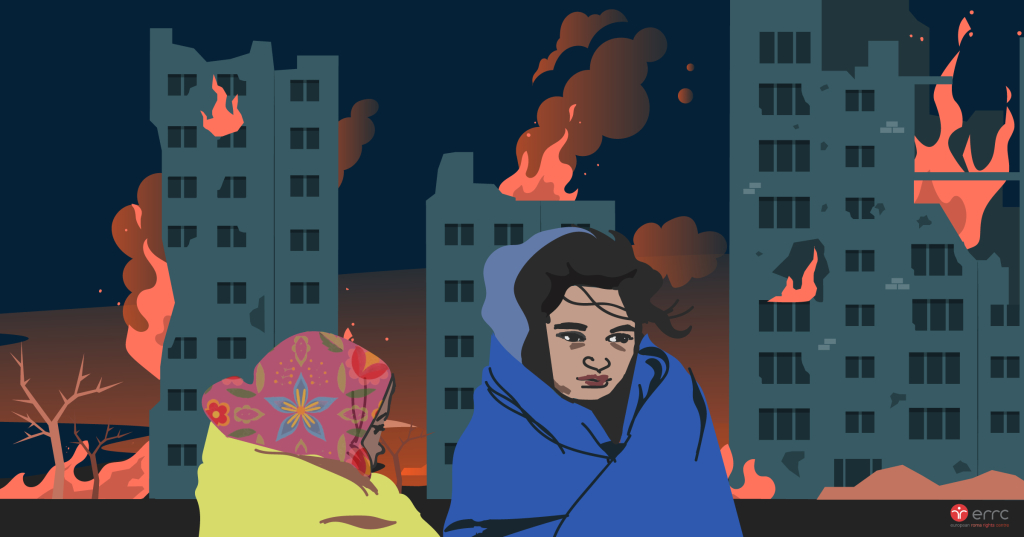Ukraine: New Research on Romani Children in State Care Shows Dangers Posed by Institutionalisation During War
31 August 2023

Brussels, 31 August 2023: The European Roma Rights Centre (ERRC) today released a report detailing the state of the Ukrainian state care system for Romani children. It uncovers the fate of children within the country, those who have fled to neighbouring countries, and the extreme likelihood that Romani children formerly in state care are among the many thousands forcibly abducted by Russian forces. The report is based on research conducted by the ERRC, which includes a series of interviews with Romani families, civil society activists, and representatives of children’s services, as well as high-ranking officials.
“The fate of Romani children in Ukrainian state care institutions has never been systematically assessed” said the report’s author, Anastasiia Zhuravel. “This is partially due to a proscription on collecting ethnic data – such an analysis would almost inevitably reveal systematic antigypsyism. This report is an attempt to shed light on what has happened to the Romani children who end up in state institutions. What provoked the unprecedented overrepresentation of Romani children in some boarding schools throughout Ukraine? How did the COVID-19 pandemic and the full-scale war impact the lives of Romani children in state care? We have attempted to answer these fundamental questions and address the ineffectiveness of the outdated system of state care in Ukraine that benefits no one, let alone the best interests of the children.”
The new report shows how shortly after the Russian invasion in February 2022, Ukrainian authorities began a chaotic system of evacuation of children in state care whereby children were sent out of Ukraine with little procedure or ways of tracking where children would ultimately reside. The vast majority of children were simply returned to their families (with little in the way of risk assessments). In some cases, experts interviewed by the ERRC described a reluctance or inability to evacuate state institutions close to or beyond the frontlines. The research demonstrates how institutionalised children’s care, already detrimental to children’s wellbeing during peacetime, has become outright dangerous during a time of war.
In addition to describing the situation since the outbreak of full-scale war, the research covers the period immediately before the war when Ukraine was in the process of deinstitutionalising its state care system. The report finds that progress on deinstitutionalisation had already stalled in the year before the war. Overrepresentation of Romani children in state care institutions persisted in many regions or individual bordering schools. Experts who were interviewed assessed that in some institutions between 80% and 100% of the children were of Romani origin. The research finds the care system in Ukraine to have been inefficient and costly, with most funds being spent on employee salaries rather than meeting the needs of children. The research also details failures of social services towards Romani families during the Covid-19 pandemic.
Experts urge the government to collect ethnically disaggregated data to develop effective inclusion policies for the Roma national minority. The challenges associated with war remain particularly acute, and the state should address them without undue delay, including providing humanitarian aid, equipping state care institutions with bomb shelters, and ensuring the safety and well-being of Romani children who may be separated from their parents and placed in institutional state care.
The report In Time of War: Romani Children in State Care in Ukraine can be downloaded here.
For more information or to arrange an interview, contact:
Jonathan Lee
Advocacy & Communications Director
European Roma Rights Centre
jonathan.lee@errc.org
+32 49 288 7679




